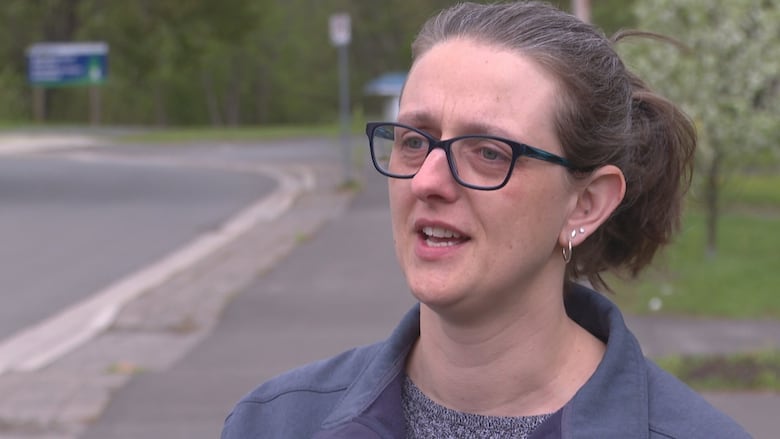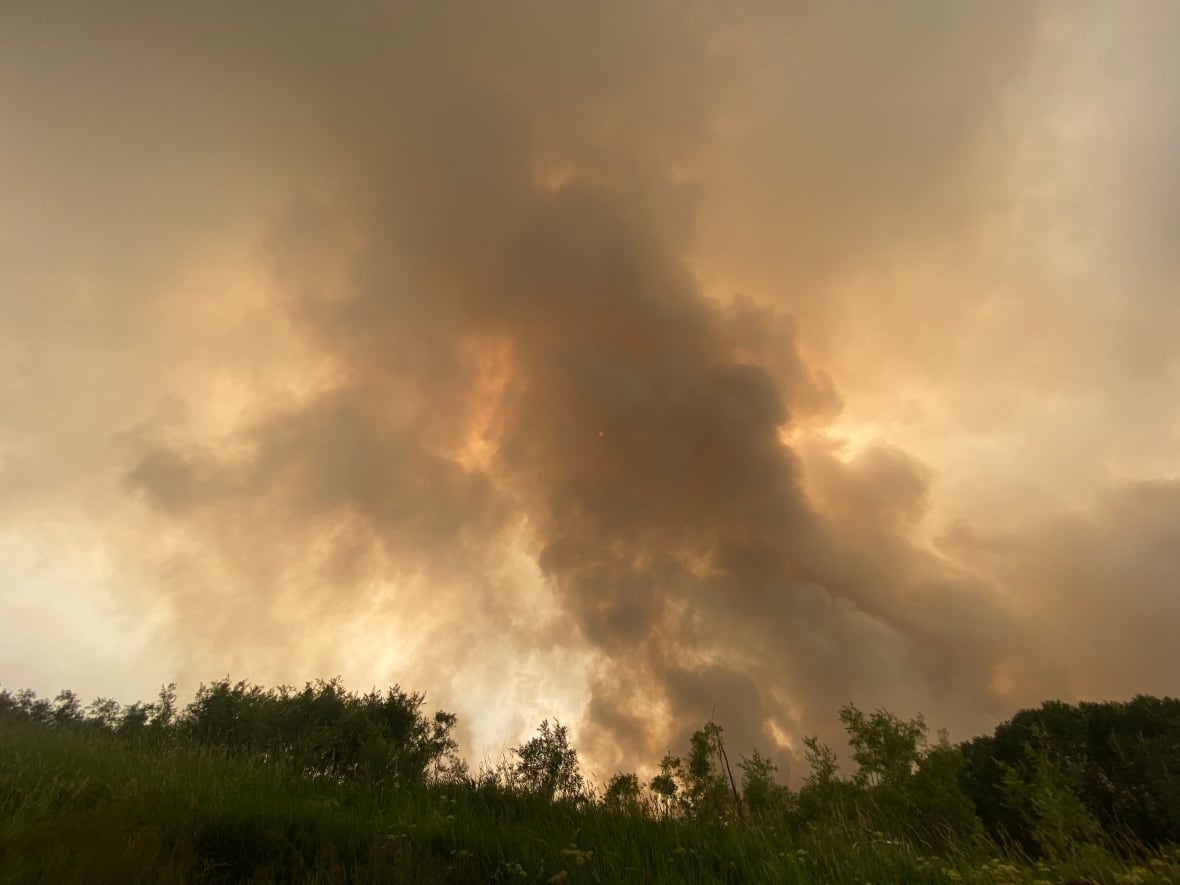Air pollution from wildfires a serious health threat, says head of NB Lung
People can protect themselves by checking air quality, staying inside, says Melanie Langille

People with chronic lung conditions and diseases should take their symptoms seriously when there are air quality alerts like the one issued for northern New Brunswick on Sunday, according to a group promoting lung health in the province.
Environment Canada issued the alert because of smoke drifting across the country from wildfires in the Prairies.
"If you are living with a lung or heart condition, you want to be watching and monitoring yourself and if you experience a flare up of your symptoms, don't ignore it because it's a legitimate thing," said Melanie Langille, CEO of NB Lung.
"You want to be reaching out to health professionals if you do have trouble breathing or if you feel some pressure in your chest. This can be a serious issue, so it's not all in your head. It could definitely be triggered by the pollution in the air."
Langille said people with serious lung conditions aren't the only ones who should be concerned. Seniors, young children, pregnant women or people who work outdoors or do strenuous activities can also be affected by poor air quality.

She recommends people pay attention to monitoring programs like Environment Canada's Local Air Quality Health Index (AQHI).
It rates a variety of air quality measures on a scale of one to 10 (from good to bad) at the community level.
"I have very mild asthma, but I notice an increase in my symptoms even when the AQHI is just at three," Langille said. "I think we were at five or six or even seven over the weekend here in New Brunswick, so that's really quite elevated for us."
Stay inside, limit outdoor activities
When the air quality is poor, Langille suggests people stay inside, use an air purifier, and ensure windows and doors are closed and sealed properly.
"You can also get a break from smoky air by going to places like libraries and malls that tend to have good ventilation systems, good cooling systems as well," she said.
Langille said even people who aren't as vulnerable should limit their activities.
"Stay inside as much as you can," she said. "It's not the best idea to go for a long strenuous run when the air quality is poor. Maybe you want to do your exercise inside or reschedule it."
The air quality in northern New Brunswick returned to normal early in the week, but Langille said it's worth monitoring air quality throughout the fire season.
"Wildfire season typically extends from early spring into the fall, so we've got another couple of months of higher risk for wildfires in various parts of the country," she said, "so we'll be keeping a close eye on this."
With files from Shift

